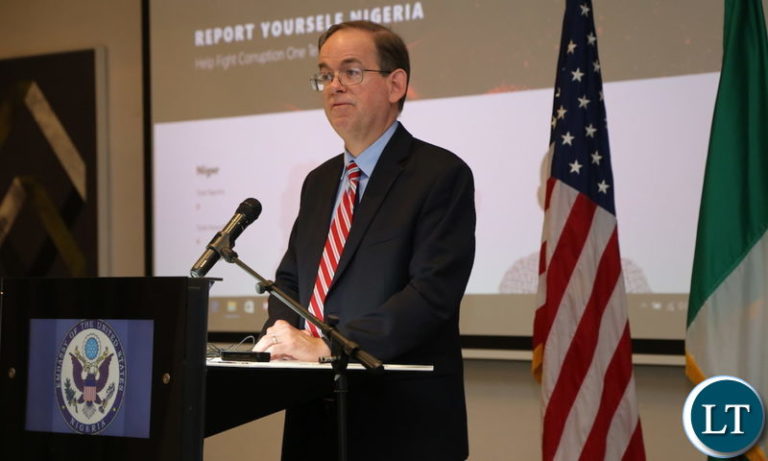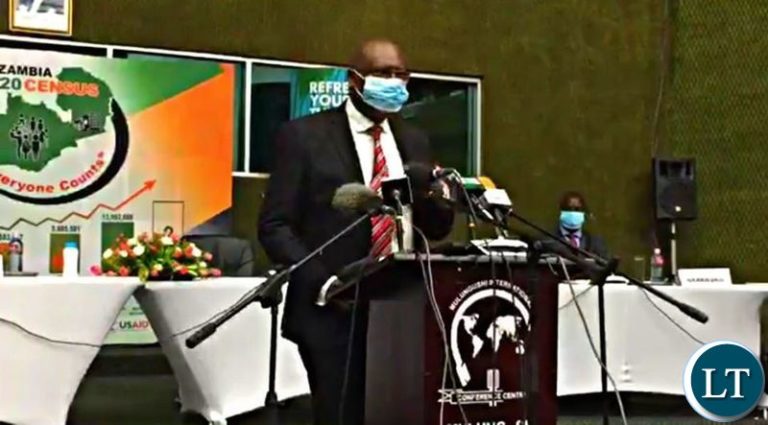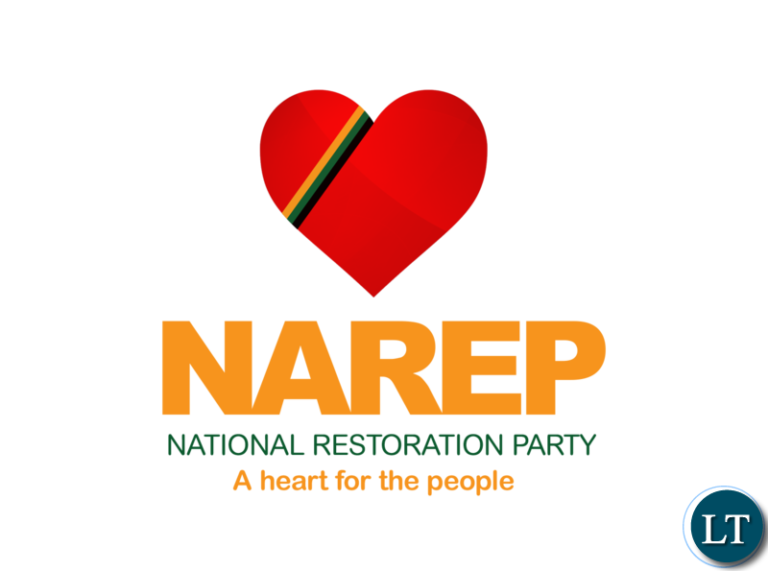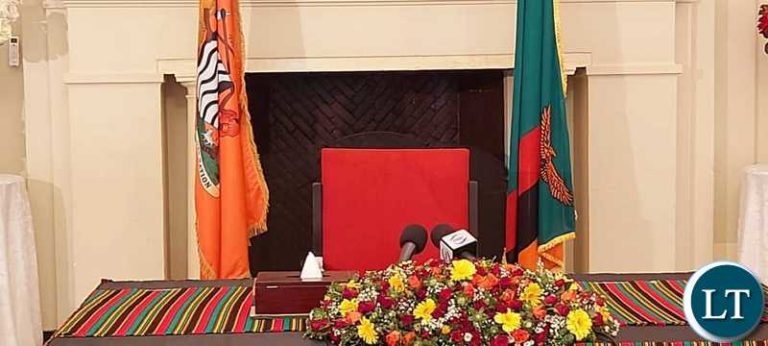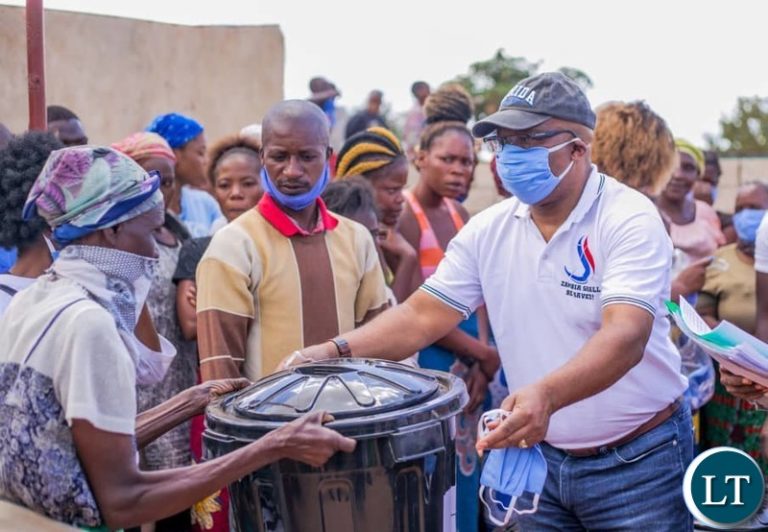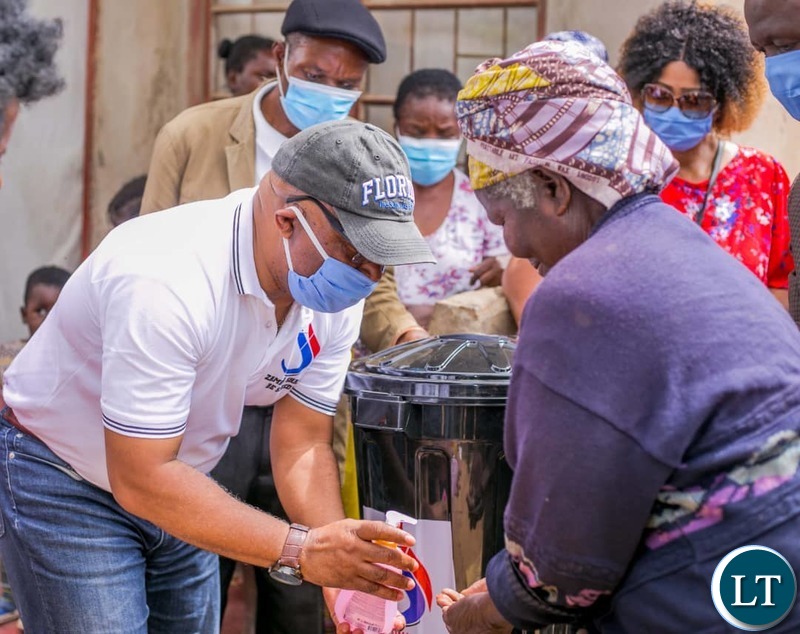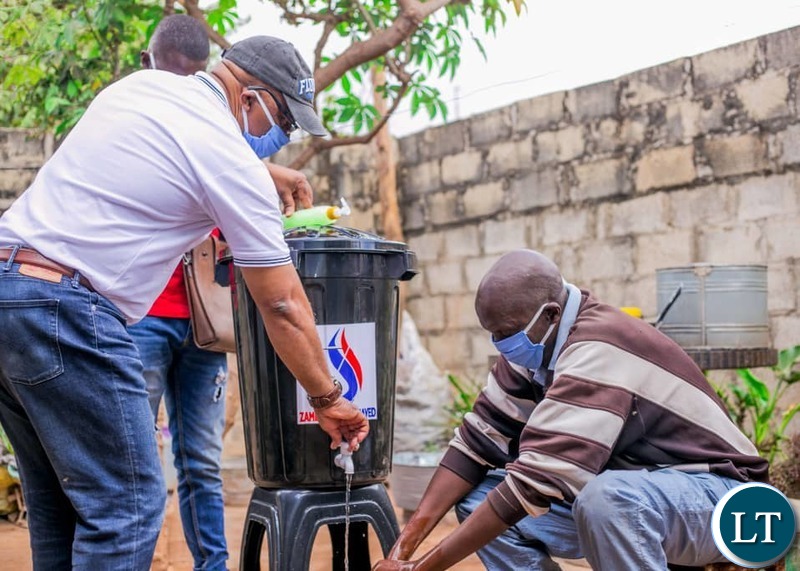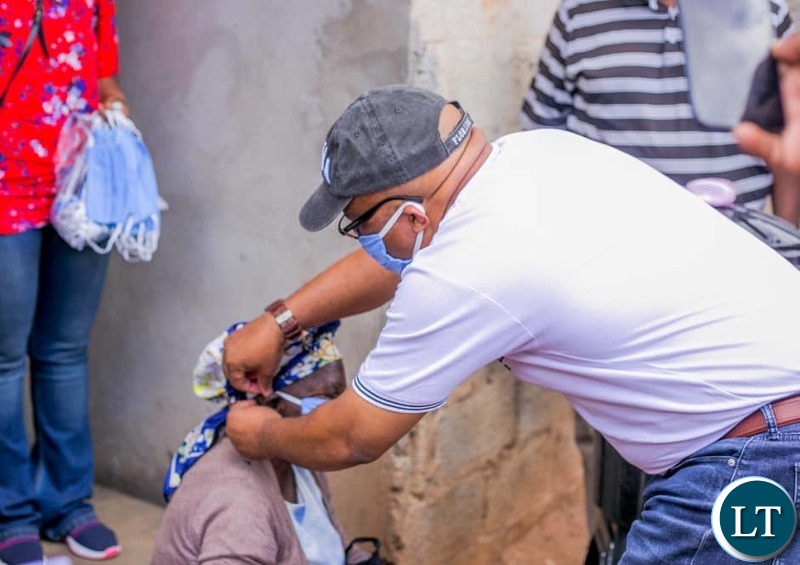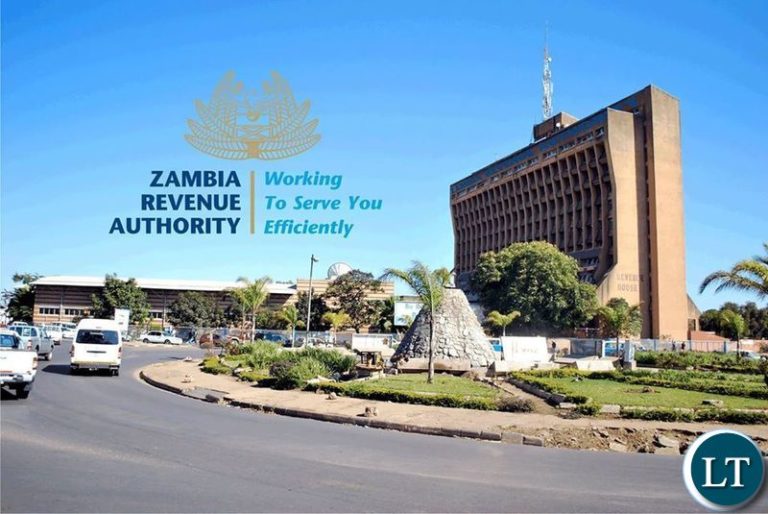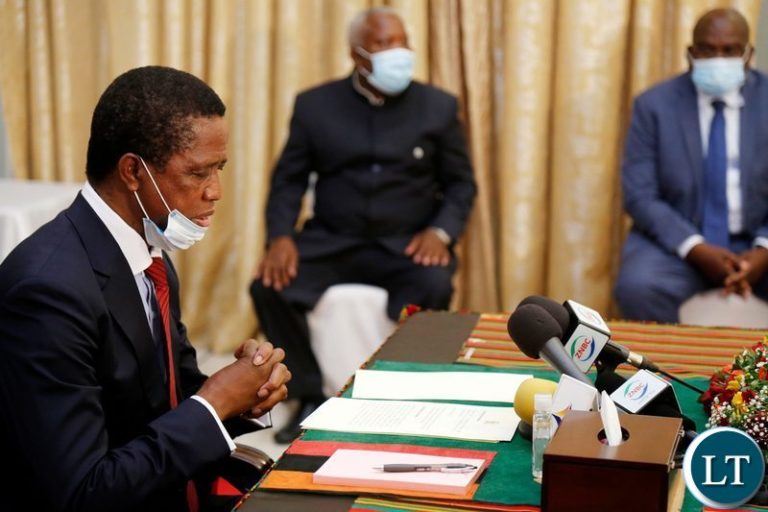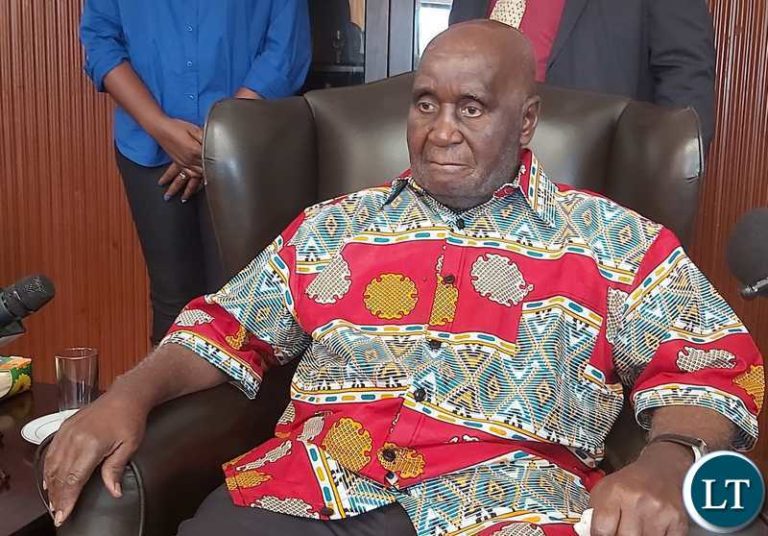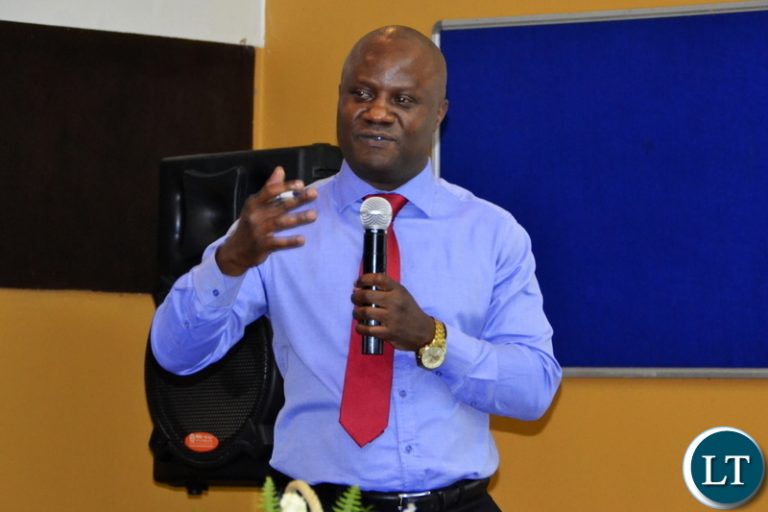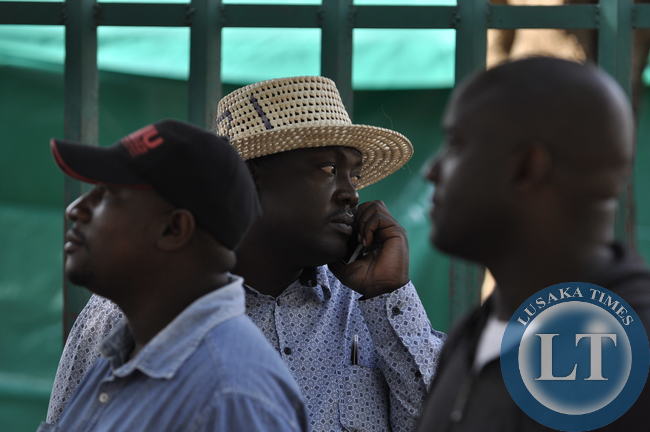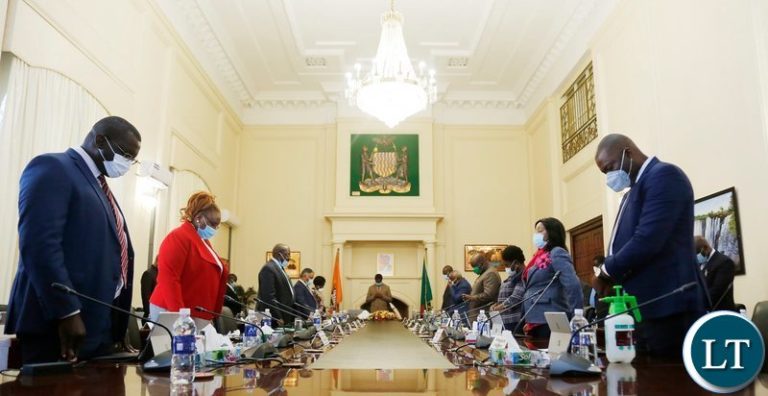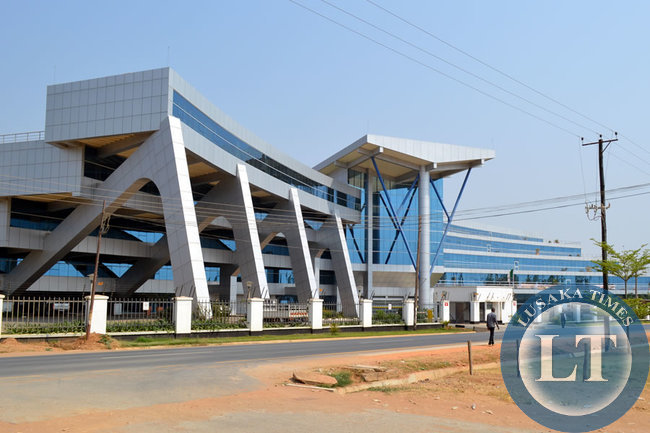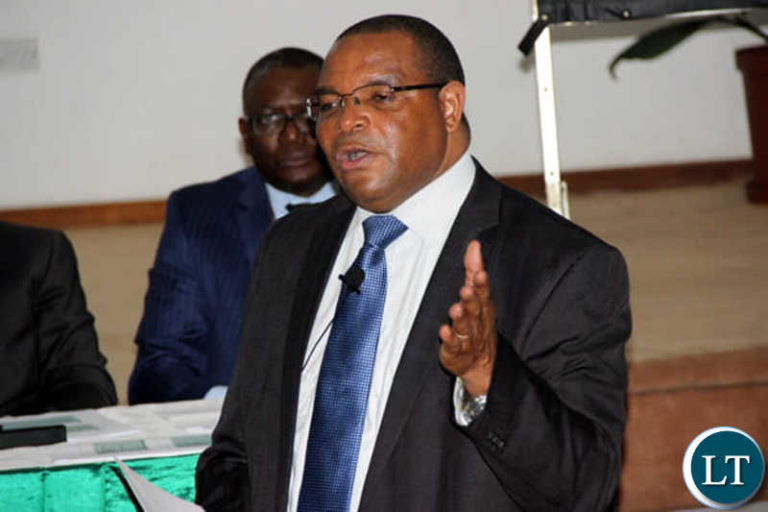Countrymen and women,
A month ago, I addressed the nation and announced that the country was at war, a public health war.
Who is the enemy?
This enemy is the novel Coronavirus also known as COVID-19, which is engulfing the whole world at a rate never seen before in history.
Countrymen and women,
Zambia first recorded cases of COVID-19 on 18th March 2020, involving a Zambian couple who had returned from holiday in France. Shortly, thereafter, cases were detected among a group who had returned from a religious meeting in Pakistan. Over the last five weeks, cases have been increasing steadily, and local transmission of the disease has set in. Quick and decisive measures instituted by my government have ensured that potential rapid spread of the outbreak is averted and mitigated.
Following expiry of the 14-day extension period of restrictions and other control measures I announced in my last address to the nation, I now update the nation on the current position.
As of today, 24th april 2020, eight (8) additional cases of COVID-19 have been recorded in Zambia;
Four of the cases are from the community while the other four are hospital personnel. The cumulative number of cases in Zambia is now, 84, including three deaths.
Thirty-seven patients have recovered from the infection and 44 patients remain under isolation but all are in stable condition, except for one patient being treated for severe malaria.
Fifteen healthcare workers have so far been infected with COVID-19 while in their line of duty. Two have recovered while thirteen are stable and remain in high spirits.
Countrymen and women,
Like, I said in my second address to the nation on Thursday, 9th April, 2020, the frontline workers are the real heroes of our times and they need massive support from us. They are leaving their families for days to contain the enemy on our behalf. They are doing this at great risk to their own lives and those of their families. They are protecting our lives day and night and they are saving lives of the sick. I pay tribute to them and wish those who are sick quick recovery so that they continue to do what they do best – saving our lives.
Countrymen and women,
This is why my directive in my last address to the multi-sectrol response led by the minister of health, to ensure these men and women are protected at all times cannot be overemphasised. For the work they do, let us pay back to them by ensuring they are protected at all times. I, therefore, direct that the multi-sectrol team to ensure that all the resources that have been sourced so far, especially the personal protective equipment (PPEs) are quickly availed to these frontline workers.
Countrymen and women,
I must acknowledge that the country has received huge donations from local and international donors following the outbreak of COVID-19. Therefore, I would like to thank all cooperating partners and assure them of prudent use of these donations in accordance with the public finance management act of 2018.
Countrymen and women,
As you maybe aware, today is exactly one month since I announced the initial measures and it is now time to take stock and review what has taken place in our country in the fight against COVID-19.
As we strive to preserve the country’s health security by scaling up COVID-19 control interventions, we remain alive to the impact these interventions have on the economy of the country.
Countrymen and women,
We have to choose life or livelihood or both.
Our expenditure on COVID-19 has been unplanned; our exports are constricted. Copper prices are all time low. Tourism has been run aground due to COVID-19. The exchange rate is not as it should be; and businesses out there are hurting. I feel your pain. I do not need to mention you individually but I know that little outlet that has been closed brings Nshima to your table. That little outlet that has been closed pays your rent. That little outlet pays school fees. But it could have been worse had we locked ourselves completely to avoid COVID-19 from coming to Zambia.
There are other questions that require answers, which have an impact on the social-economic affairs of our country bearing in mind that currently our national budget has been thrown into disarray as a result of the COVID-19. If we maintained the status quo of the controlled movement of our people and restriction of some businesss due to the pandemic, where will the money come from for the many other important programmes?
- A. Where will we find money to pay salaries for our public service employees?
- B. Where will we find money to pay retirees?
- C. What about FISP?
- D. What about the money for Social Cash Transfer?
- E. Where will we find money to buy the much-needed drugs for our hospitals?
- F. What about debt repayment obligations?
- G. What about fuel importations?
- H. When and how will the children get back to school? It is now over a month since schools were closed and the children are locked-up in homes. Some of them literally with no modern facilities such as internet?
- I. Who will harvest the crops for our national food security?
- J. Who will deliver farming inputs?
- K. How will we distribute food relief?
The jury is out on these questions!
Countrymen and women
Based on the lessons and experiences learnt from the last one month where we have generally done well with containing the COVID-19 pandemic, we now know that we need to be cautious in reopening the key areas of our economy subject to public health regulations, guidelines and certification.
We are still determining the extent of the disease through escalated testing and screening to assess when we shall reopen our economy fully.
However, I have decided that some activities such as the following may continue being undertaken normally subject to adhering to public health regulations, guidelines and certifications:
- Places of worship may congregate while observing social distancing, mandatory face masks and sanitising and hand washing guidelines.
- Sporting activities such as golf and tennis, which do not involve physical contact between players where the sport is played in non-crowded space, can begin to be played but bars in those premises will remain closed.
- Barbershops and salons may continue to operate with strict adherance and observing social distancing and regular sanitising and hand washing.
Failure to adhere to the public health regulations, guidelines and certification, will attract penalties including revoking of licences at any given time. I am therefore directing law enforcement agencies to pursue any offenders. The general public are equally encouraged reporting any cases of non-adherence to these measures to relevant authorites. Let us be each other’s gate keepers.
The government will continue modification of the implementation of COVID-19 interventions to facilitate continued economic activity and a gradual return of daily life to normalcy.
We note that drastic change to current preventive and control measures could erode the gains attained and the situation could get out of control. Therefore, modification of control measures will be informed by the evolution of the outbreak.
The main COVID-19 control strategy going forward shall continue to centre on prevention of infection, case finding through increased testing, isolation of cases, swift and thorough tracing of contacts, community engagement, and case management.
The war we face today can only be won and conquered if, apart from you and I adhering to the new normal, you also allow health workers to conduct massive testing and contact tracing in our communities.
These form the cornerstone to overcoming COVID-19 and shall be achieved through intensified surveillance at points of entry; targeted community screening and testing; and routine screening and active case search in healthcare facilities, particularly patients with respiratory symptoms.
Also critical is mandatory use of masks in public; physical distancing; and observance of personal hygiene measures, including hand washing and respiratory etiquette.
Countrymen and women,
Every dark cloud has a silverlining. The current situation we find ourselves in opens a window of opportunity for Zambian farmers to produce and sell their products to chain stores that for a long time have denied them business and opted for foreign products.
I am, therefore, directing the ministry of commerce, trade and industry to ensure that chain stores prioritise local agricultural products in their localities. If a chain store is in Chipata let them buy agriculture products from our farmers in eastern province. Under the circumstances we are in, only products that cannot be sourced from locals should be imported.
I hope that once this is actualised, even after COVID-19, our farmers will continue trading with these chain stores. I encourage citizens to form cooperatives to ensure they meet quality and safety demand.
Countrymen and women,
We need collaborative action in the coming months. Only by working together can we make significant progress in mitigating the impact of COVID-19 on our socio-economic development. The COVID-19 pandemic has proved to us today that we are facing challenges that are global and interconnected. However, we are a developing country and we will feel it more than many others in terms of social economic impact.
For this reason, I am instructing the minister of finance to pursue other options such as consolidating available resources in various empowerment funds so that these may be disbursed to small businesses, women groups, youths and the most vulnerable that have been hit the hardest.
I look forward to the ministry of finance to creating a COVID-19 economic recovery fund that will help existing businesses, especially affected SMEs to remain stable during this period and beyond.
The K10 billion loan facility I announced in my second address which is under the bank of Zambia could be part of the resources identified to this fund. I am also directing the minister of finance to identify other sources of funding to help beef up this fund so that as many businesses as possible may benefit.
Countrymen and women,
In order to create new businesses aimed at taking advantage of the void that has been created by reduced exports to Zambia because of COVID-19 lockdowns, the citizen economic empowerment commission (CEEC) should look at proposals for new bankable businesses that can be funded. My priority is wealth creation by creating new Zambian businesses. I will need regular updates from ceec on the implementation of their proposals.
I have also instructed the minister of communication and transport and smart Zambia to support better digital infrastructure and skills, and to formulate digital trade and e-services. This also applies to the ministry of education which is working hard to drive e-learning and television education in the country.
Beyond COVID-19, our future economic growth will need to tap into emerging digital opportunities. E-services in the health sector will also be encouraged, including mobile phone-based diagnostic tools to ensure that those in need obtain the required information through out the crisis.
The ministry of agriculture is instructed to encourage and support farmers to grow winter maize and engage in other agricultural activities to ensure that we create new businesses during this period.
Countrymen and women,
Food security will be the biggest problem post COVID-19. I am directing the minister of agriculture and the minister of national development planning to collaborate with the private sector and develop partnerships to grow food for both domestic and export markets. My government will help provide both financial and logistical support towards the programme. The ministry of national development planning is directed to draft a new climate change action plan to secure food production in Zambia in light of recent negative impacts of climate change.
Country men and women
My government has already announced additional financial measures to those announced two weeks ago to cushion the impact on businesses due to COVID-19. These include the following:
Waiver of tax penalties and interest – my government has decided to waive tax penalties and interest on outstanding tax liabilities resulting from the impact of COVID-19. This will assist companies and businesses manage their cash flows during this period when they are faced with reduced revenues.
Suspension of customs duties and vat on additional medical supplies used in the fight against COVID-19 – government will extend the list of medical supplies that are not subject to import duty and value added tax for an initial period of six months. This is meant to expedite the provision of medical related devices needed to support the fight against COVID-19.
In addition to that, government has already Released the following monies:
- K500 million to the public service pensions fund to pay over 1,500 retirees or their beneficiaries;
- K170 million to banks to clear third party arrears, and;
- K140 million to various road contractors.
These releases are part of the K2.5 billion I announced in my address to the nation two weeks ago.
I direct the minister of finance to expedite the pending payment of k1 billion to various suppliers of goods and services to government.
As I stated in my last address, I expect commercial banks to prioritise lending, on favourable terms, money to small and medium enterprises and households hardest hit by the COVID-19 pandemic. This money will come from the k10 billion medium-term refinancing facility which eligible commercial banks, and non-bank financial institutions can access from the bank of Zambia.
Countrymen and women,
Let me end by acknowledging the multi-sectoral response team for the work they are doing in trying to contain the infection rate, making finances available for the fight, and sensitising the nation on preventive measures. Let me thank all the countries, organisations, and individuals for massively answering the call and donating to this noble and life-saving cause.
Indeed, we should thank the almighty God because it would have been worse. But God can only help us if we help ourselves. God can only help us if we stayed at home and avoided unnecessary movements. God can help us if we avoided crowded places and kept social distancing. God can help us if we stopped hand shakes and washed our hands or cleaned them with hand sanitisers frequently. God can help us if we wore face masks.
Let me thank you the Zambian people for your understanding, cooperation and unity. You have made my administration’s work easier with your all-round support.
May God bless you all,
I thank you.


